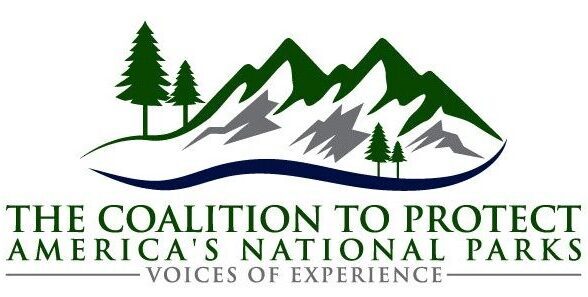
July 29, 2024
Dear Leader Schumer, Leader McConnell, Speaker Johnson, and Leader Jeffries:
Despite widespread national and Tribal opposition to the proposed 211-mile Ambler mining road through Gates of the Arctic National Preserve, the Senate Armed Services Committee included a speculative poison pill amendment from Senator Sullivan in the National Defense Authorization Act (NDAA) that is a blatant giveaway to international mining companies. This provision would legislatively force the approval of the private Ambler industrial road in Alaska. On behalf of the Defend Brooks Range Coalition, which works in partnership with 89 Alaska Native Tribes and First Nations, as well as numerous Alaskan subsistence users, business owners, community leaders, hunters and anglers, and regional and national conservation groups, we urge you to oppose the inclusion of this amendment in the final NDAA.
In a Record of Decision released in June 2024, the administration rejected this destructive mining road due to impacts to Alaska Native communities and subsistence food resources, including the Arctic caribou, sheefish, and salmon of Northwest Alaska. Those findings are based on science, Traditional Knowledge, and a robust consultation process that involved the input of numerous Tribes and community members that would be directly harmed by this project.
The Ambler industrial mining road is not an issue of national security. Despite misleading claims, mining reports fail to demonstrate that the Ambler District contains economic amounts of critical minerals that would justify the construction of the Ambler Mining Road. The most abundant mineral in the Ambler District is copper, which is not a critical mineral and would not aid domestic supply chains, as the ore would likely be processed in China. Global reserves of copper exist with US trading partners including Chile, Australia and Peru.
President Biden has already established clear direction on this project, with the issuance of its decision on June 28 adopting the “No Action” Alternative due to the substantial cultural and subsistence impacts to more than 30 Alaska Native communities. If built, this project would cross 2,900 streams, 1,794 acres of wetlands, and 11 major rivers and impact more than 20 million acres of wild and connected national parklands. The Bureau of Land Management identified numerous communities across a vast region whose subsistence resources, cultures, and traditional ways of life would be permanently harmed by the Ambler Road – from construction, pollution, heavy truck traffic, and operations that would alter wildlife migration routes, destroy habitat, and cause widespread harm to fish, caribou, and other important food resources.
Alaska National Interest Lands Conservation Act (ANILCA) does not guarantee the road. The Ambler Road language in ANILCA Section 201(4) refers only to the portion of the road that crosses Gates of the Arctic National Preserve. Senator Sullivan’s amendment would bypass the law in ways that were not contemplated by Congress when it passed ANILCA: Congress did not intend for Section 201(4) to override Section 810, which requires Tribal consultation and prioritizes subsistence uses and resources in permitting projects including the Ambler Road. Congress did not intend for ANILCA Section 201(4) to override Title XI, which requires a joint permitting process for any transportation system through a conservation system unit. Congress was aware in passing ANILCA that other agencies would be involved in any permitting process to allow surface transportation across Gates of the Arctic National Preserve and other public lands. Senator Sullivan’s amendment would ignore the input from numerous Alaska Native Tribes through extensive Tribal consultation and erase the direct subsistence and cultural resource impacts to over 30 Tribes across the region.
Senator Sullivan’s amendment overrides the National Environmental Policy Act (NEPA) and fundamentally undermines its purpose. The Bureau of Land Management was required by law to undertake the NEPA process as part of its consideration of the Ambler Road project. It selected the No Action alternative based on its findings that the proposed road would have significant adverse impacts to subsistence and other resources across the vast region. This decision was based on science and historic levels of input from Tribes and the public. Congress should not set a dangerous precedent of superseding bedrock laws that govern land management and environmental protections.
The Biden administration’s move to safeguard the Brooks Range of Northwest Alaska is a testament to the collective will of the people. For years, numerous Alaska Native communities have vehemently opposed this project, with 89 Tribes and First Nations passing or signing onto resolutions against the Ambler Road. Over 135,000 Americans – including tens of thousands of Alaskans – spoke out against the proposed Ambler Road during the most recent national comment period. Dozens of nonprofits, companies, brands, and communities spoke out through in-person hearings and online comments. 82 percent of the public testimonies submitted in 12 separate in-person hearings across Alaska were opposed to the Ambler Road, calling for the Ambler Road permits to be revoked.
Ultimately, legislatively mandating the development of the Ambler Road goes against the science- and Traditional-Knowledge-based process that occurred here, ignores widespread in-state and Tribal opposition, and circumvents bedrock laws designed to foster informed decision-making. The reality is that this road would be an expensive, destructive and highly speculative project that has no national security relevance, and in fact would permanently threaten the health and wellbeing of Tribes, communities, and national park wildlife in Northwest Alaska. We urge you to oppose this amendment’s inclusion in any final NDAA.
Sincerely,
The Defend Brooks Range Coalition
Alaska Community Action on Toxics
Alaska Wilderness League
Alaska Wilderness League Action
Alatna Village Council
Center for Biological Diversity
Coalition to Protect America’s National Parks
Earthworks
Evansville Tribal Council
League of Conservation Voters
National Parks Conservation Association
Natural Resources Defense Council
Sierra Club
Tanana Chiefs Conference
Tanana Tribal Council
The Wilderness Society
Trustees for Alaska
Yukon River Inter-Tribal Watershed Council
cc:
Senator Jack Reed
Senator Roger Wicker
Senator Joe Manchin
Senator John Barrasso
Representative Mike Rogers
Representative Adam Smith
Representative Bruce Westerman
Representative Raul Grijalva
